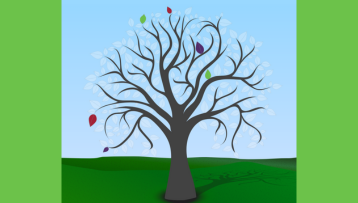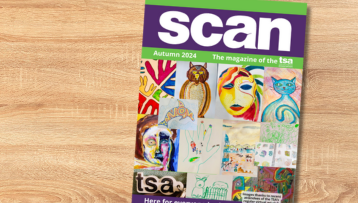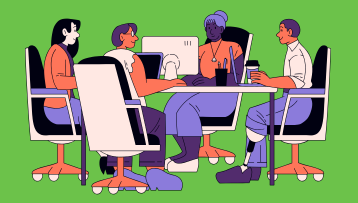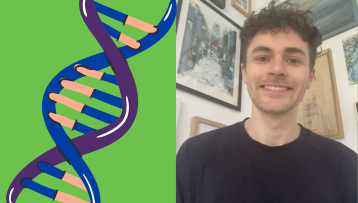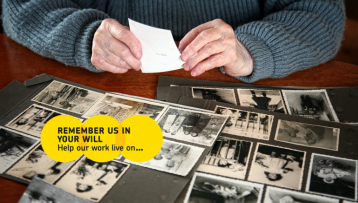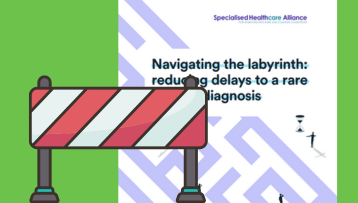About the new project
One of the current priorities in TSC research is to develop a model of the human circulatory system using human cells, so that scientists can study LAM in more detail. LAM (or ‘lymphangioleiomyomatosis’) is a condition affecting around 35-40% of females who live with TSC. LAM is caused by TSC cells moving from different parts of the body to the lungs, causing cysts.

Interview with Dr Dunlop
Dr Dunlop: I knew from school-age that biology and the workings of the human body interested me. Time working in research labs during my degree confirmed to me that exploring what happens during human disease processes is scientifically fascinating. I aim to use my scientific knowledge to have a positive impact on patients’ lives.
Could you tell us about your background in TSC research and your TSC research highlights to date?
Dr Dunlop: I started researching TSC in 2007 when I joined the team in Cardiff. Through studying the molecular changes in the cells when TSC1/2 are lacking, an early highlight was being the first group to show that an enzyme controlling autophagy (the process by which cells get rid of faulty or unwanted proteins) could also negatively regulate mTOR activity. This helped extend our understanding of cell growth processes.
More recently, we have been researching new drug combinations, and a research highlight last year was the publication of our work showing that targeting some pathways which are under increased stress in TSC-deficient cells shows promise at killing TSC disease cells in laboratory models. We are working with clinicians to see whether some of these drugs could be suitable for patients in the future.
What are some of the most satisfying things about your role?
Dr Dunlop: With research, it is always amazing to potentially be the first person to observe a particular biological phenomenon. That first ‘oooh, this could be interesting’ result is what keeps researchers excited about their field. It is also really satisfying to see younger researchers at degree and doctoral level developing their skills and making interesting findings of their own that will ultimately help us better understand and treat disease.
What are some of the most exciting things happing in TSC research?
Dr Dunlop: There are several groups working on new therapies for TSC patients. It is exciting that some of these have now reached the clinical trial stage, such as examining whether cannabidiol can control seizures in TSC patients (NCT02544763) and a small trial looking at statin treatment in LAM patients (NCT02061397). Hopefully more treatment options for TSC patients could be on the horizon.
Is there anything about the LAM project that you’re most looking forward to?
Dr Dunlop: I’m really looking forward to developing and using a new laboratory model to study LAM, which should give us some new insights into the condition. I hope to uncover some of the pathways that allow TSC-deficient cells to get into the lung and form LAM nodules, with the aim that these could be a target for drug therapy in the future.
What are you up to outside of the lab or University in your free time?
Dr Dunlop: With two little boys under five, I don’t get much free time these days! I’ve always enjoyed sport, so I do try and get out for a run when I can. I have, perhaps foolishly, entered a 10k race in June, so that has given me a goal to aim for.
Do you have anything to say directly to the TSC community?
Dr Dunlop: It is always a pleasure to chat to the TSC community about our research and it is hugely motivating to hear from patients and their advocates about the challenges they face. I really appreciate their encouragement to continue the work we do, and hopefully, working together, we can improve their treatment options.
Do you have anything extra to add?
Dr Dunlop: A huge thank you to all the fundraisers who, through the TSA, have been supporting our work. Your support is invaluable.











